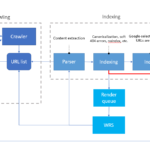Myth Buster: Is Gluten Really the Cause of Gastrointestinal Issues?
By Pankaj Dhuper,Fittr Coach
Over the last decade, “gluten-free” has become a buzzword, often promoted as the solution for bloating, digestive discomfort, and gut health problems. Many people assume that gluten is the culprit behind gastrointestinal (GI) issues, and that a gluten-free diet (GFD) is the universal answer.
But here’s the truth: gluten is not inherently harmful for most people. Unless you have celiac disease or proven non-celiac gluten sensitivity (NCGS), there’s no strong evidence that gluten causes digestive issues—or that eliminating it improves symptoms.
What Does the Evidence Say?
1. Clinical Trials and Meta-Analyses
- Celiac Disease & NCGS: Gluten does trigger symptoms in people with celiac disease and in some with well-characterized NCGS.
- IBS Patients: Some studies show mild improvement in IBS symptoms with a gluten-free diet. However, placebo-controlled studies reveal no consistent benefit for most IBS patients.
- Healthy Individuals: In controlled trials, gluten does not cause symptoms in people without gluten-related conditions.
👉 The majority of GI complaints attributed to gluten are not caused by gluten itself.
Mechanisms and Misattribution
- Nocebo Effect: Some individuals expect gluten to cause symptoms. Research shows their symptoms worsen even when unknowingly given gluten-free food labeled as “gluten-containing.”
- FODMAPs, Not Gluten: Wheat also contains fermentable carbohydrates (FODMAPs), which are more likely to cause bloating and discomfort. Many people who feel better on a gluten-free diet are actually benefiting from reduced FODMAP intake—not gluten elimination.
Risks of Following a Gluten-Free Diet Without Need
Eliminating gluten without medical necessity comes with drawbacks:
- Nutritional deficiencies: Lower intake of fiber, B vitamins, and minerals like iron, calcium, and magnesium.
- Increased cost: Gluten-free products are often more expensive.
- Lower dietary diversity: Removing whole grains unnecessarily reduces variety in the diet.
👉 For the general population, a gluten-free diet can do more harm than good if not guided by medical need.
When Is Gluten-Free Truly Necessary?
- Celiac Disease: A lifelong, strict gluten-free diet is the only treatment.
- Diagnosed NCGS: For those with confirmed sensitivity, symptom improvement justifies gluten elimination.
- Wheat Allergy: Rare but requires avoidance.
For everyone else experiencing GI symptoms, it’s better to:
- Consult a gastroenterologist
- Rule out underlying conditions
- Consider evidence-based dietary approaches like a low-FODMAP diet under supervision.
Conclusion
The belief that gluten universally causes gastrointestinal issues is a myth.
- For most healthy individuals, gluten is safe.
- Symptoms often blamed on gluten are more likely linked to FODMAPs or other dietary factors.
- A gluten-free diet should be reserved for celiac disease, diagnosed NCGS, or wheat allergy—not as a blanket solution.
Bottom line: Don’t self-diagnose gluten intolerance. If you have persistent digestive issues, seek professional evaluation for a tailored, science-backed plan.
👨🏫 By Pankaj Dhuper, Fittr Coach
Helping you separate nutrition myths from science for smarter, sustainable health choices.
SEO Keywords:
gluten myth, gluten and gut health, gluten free diet risks, gluten intolerance facts, IBS and gluten, celiac disease vs gluten sensitivity, Fittr coach nutrition tips
Hashtags:
#gluten #gastrointestinal #myth #buster #nutritionfacts #guthealth #digestivewellness #foodmyths #sciencebasedfitness #fittrcoach









